Illinois Construction Contracts
- Private Jobs
- Public Jobs
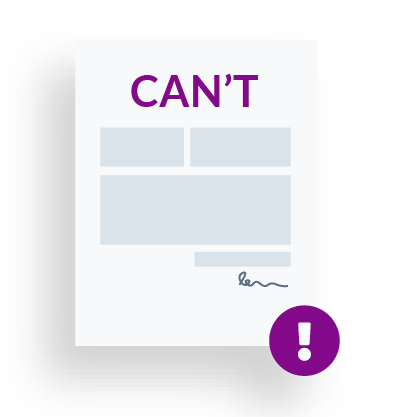
Lien Rights Can’t Be Waived By Contract
Illinois statutes specifically prohibit the waiver of a right to claim a lien prior to performing work or furnishing materials to the project.
Pay-If-Paid Enforceable
Pay-if-paid clauses are enforceable in Illinois, but cannot be used as a defense to a mechanics lien claim.
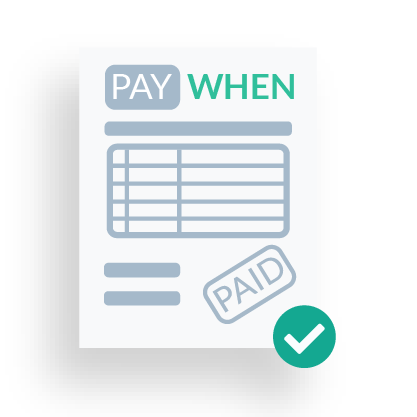
Pay-When-Paid Enforceable
Pay-when-paid clauses are enforceable and treated as requiring payment within a reasonable time.
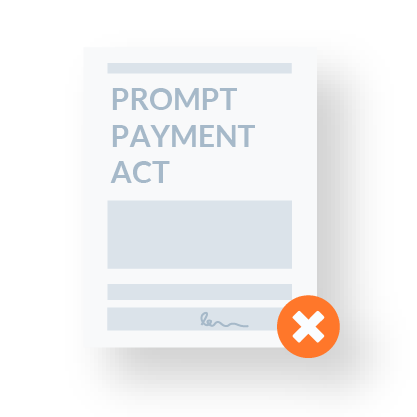
Payment Timing Can't Be Modified By Contract
Payments on private projects must be made no later than the deadlines established under Illinois' prompt payment act.

Retainage Can't Be Modified By Contract
No more than 10% retainage may be withheld on private projects in Illinois. Upon 50% completion, the amount is required to be reduced to no more than 5% of the remaining progress payments.
Pay-If-Paid Enforceable
Pay-if-paid clauses are enforceable on public projects in Illinois, but cannot be used as a defense to a claim against the payment bond.

Pay-When-Paid Enforceable
Pay-when-paid clauses are enforceable and treated as requiring payment within a reasonable time.
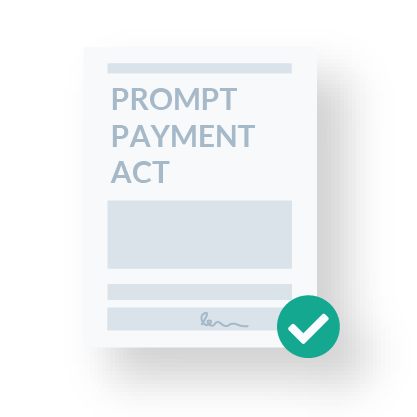
Payment Timing Can Be Modified on Local Gov't Projects
On local government projects in Illinois, the payment timing may be modified to greater time periods. However, on state projects, payment must be made according to the prompt payment deadlines.
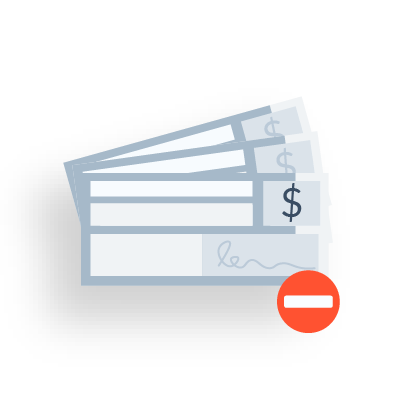
Retainage Mostly Unregulated
Illinois law does not regulate the amount of retainage that can be withheld on a public project. Therefore the terms of the contract will apply
A construction contract outlines each party’s obligations, rights, and remedies on a project. But although the language in specific contract clauses is typically negotiable, Illinois has certain rules that govern what the agreement must include — and what is prohibited.
Keep in mind that, while Illinois’ rules for construction contract terms are written into state law, the courts determine how strictly those laws should be interpreted — and those interpretations can change.
On this page, you’ll find resources, legal information, and answers to frequently asked questions about Illinois’ construction contract and payment terms requirements.
Illinois construction contract provisions
While Illinois generally allows construction parties to set the terms of their agreement, there are some laws that regulate specific types of contract provisions. Any contract clause that contradicts the law is invalid and unenforceable.
“No lien” clauses
The use of no-lien clauses that waive the right to file a lien is specifically prohibited under Illinois law, as such rights cannot be waived prior to the performance of work or furnishing of materials to the project under 770 ILCS 60/1(d). But keep in mind, that lien rights may be subordinated under certain circumstances, which may produce a similar effect.
Contingent payment clauses
There are two types of contingent payment clauses: pay-if-paid and pay-when-paid, both of which are enforceable in Illinois, with a caveat.
If the pay-if-paid clause explicitly states that payment from the owner or higher-tiered party is a condition precedent to payment, then it will be enforceable. However, such clauses cannot be used as a defense to mechanics lien or bond claims, only claims arising under the contract itself.
Pay-when-paid clauses are also enforceable but merely as a timing mechanism to payment within a reasonable time. The underlying obligation to pay still remains.
• See: Pay-When-Paid Contracts Distinguished from Pay-If-Paid in Illinois
Payment timing clauses
On private projects in Illinois, the payment deadlines under the prompt payment act may not be altered. Payments from owners must be made within 15 days of approval (allowing up to 25 days to approve the invoice). Additionally, all other payments to subs and suppliers must be made within 15 days of receipt of payment. All late payments are subject to interest penalties at a rate of 10%/year.
On public projects in Illinois, there are separate requirements for state projects and local government projects. On state projects, the prompt payment deadlines are strict, payments by the public entity must be made within 60 days (30 days for approval, and 30 days for payment) of the receipt of a pay application. All other payments to subs and suppliers must be made within 15 days calendar days or 10 business days of receipt; whichever is later. These payment deadlines may not be modified by contract.
On local government projects, payments from the public entity must follow the same time frame as state projects, a 30-day approval period, and 30 days after approval to make payment. However, under 50 ILCS 505/6, the timing of these types of payment may be modified to a greater time period. All other payments to subs and suppliers need to be made within 15 days of receipt of payment; this cannot be modified by contract.
*Note: It is unclear if the prompt payment statutess may be waived, as Illinois does allow certain statutory rights to be waived by individuals. Best practice is to review the terms of the contract to ensure there is no such waiver language.
Retainage limits
Any contract provisions attempting to increase the amount of retainage on private projects in Illinois will be invalid, as the amount of retainage is strictly capped at 10% of each progress payment. Upon 50% completion, the amount is required to be reduced to just 5% of all remaining payments.
*Note: It is unclear if the retainage statutes may be waived, as Illinois does allow certain statutory rights to be waived by individuals. Best practice is to review the terms of the contract to ensure there is no such waiver language.
However, retainage on public works projects is generally unregulated in Illinois. Therefore, the terms of the contract will dictate the amount of retainage that can be withheld, and any potential for reduction or early release.
Illinois construction contract requirements
Illinois law doesn’t require any specific information to be included in a general construction contract. However, if the contract involves residential property over $1K, there are some requirements under the IL Home Repair & Remodeling Act.
First and foremost, prior to the execution of the contract, a Consumer Rights Brochure must be provided to the homeowner to sign, acknowledging its receipt. Once the brochure has been provided, the written contract must include the total costs (including parts, materials, and any charges for the estimate) and the contractor’s business name and address. Also, if the contract includes an arbitration agreement or waiver of the right to trial by jury, the owner must be notified of their presence and must be able to accept or reject by writing so next to the provision along with their signature.

